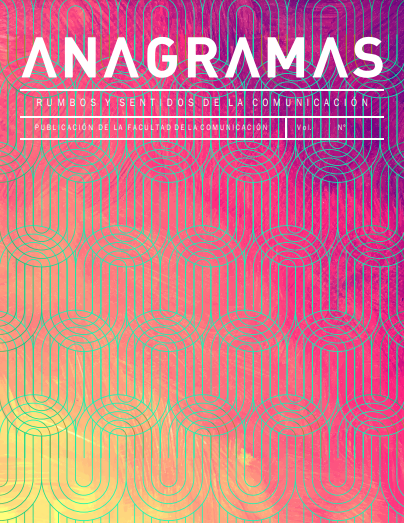Ethical Risks and Reputational Risks. The public relations challenge during the COVID-19 in Peru
Main Article Content
Abstract
This study aims to examine how public relations professionals in Peru faced ethical and reputational risks and to understand, from their perspectives, how prepared entrepreneurs would be to address reputational risks.
Given the context of the COVID-19 situation, this work justifies its significance as the use of digital tools has permeated all levels of communication, necessitating an understanding of the ethical challenges associated with these tools among communication professionals.
The research employed a basic and non-experimental methodology with a mixed approach at the descriptive level. The survey technique was utilized, and a questionnaire was administered
to 19 participants, thirteen from Lima and six from other regions of the country. ‘Latin American Communication Monitor’ and ‘The Global PR & Communication Model,’ 2021, served as references. Both reports employed a questionnaire to communication professionals in countries such as Peru, aiming to explore various topics, including ethical challenges and resources in communication, as well as reputation management and reputational risks. The results confirm that ethical values prevail in their professional roles, while reputational risks may not necessarily be considered by entrepreneurs. It is concluded that there is a need for greater dissemination of ethical guidelines within organizations, and entrepreneurs require increased awareness to safeguard their corporate reputation.
Article Details
References
Alberdi, J., & Lorente, S. (1969). Metodología de investigación por muestreo. Madrid: Ediciones Euramérica.
Suárez, A. M., & Álvarez-Nobell, A. (2022). Entre la ética y los resultados, nuevos desafíos para profesionales de la comunicación en América Latina. Mediaciones, 119-129. doi: https://doi.org/10.26620/uniminuto.mediaciones.18.28.2022.119-129
Álvarez-Nobell, A., Molleda, J., Moreno, A., Athaydes, A., Suárez-Monsalve, A., & Herrera, M. (2021). Comunicación estratégica y relaciones públicas en América Latina: crisis del -19 en la gestión de comunicación, ciberseguridad, situación de las mujeres, retos éticos y nuevas competencias. Resultados de una encuestga en 20 países. Brucelas: EUPRERA.
Argenti, P. (2014). Comunicación Estratégica y su contribución a la reputación. Madrid: LID.
Becchetti, L., & Manfredonia, S. (2022). Media, reputational risk, and bank loan contracting. Journal of Financial Stability. doi: 10.1016/j.jfs.2022.100990
Capriotti, P. (2021). DircomMap. Dirección estratégica de comunicación. Barcelona: Bidireccional.
Costa, J. (2010). El DirCom hoy. Dirección y gestión de la comunicación en la nueva economía. Costa Punto Com Editor.
Estella, A. (2020). Confianza institucional en América Latina: un análisis comparado. Documentos de trabajo n° 34. Madrid: Fundación Carolina. doi: https://doi.org/10.33960/issn-e.1885-9119.DT34
Global Alliance for Public Relations and Communication Management & Corporate Excellence - Centre for Reputation Leadership. (2021). Global PR & Communication Model.
Hagelstein, J., Einwiller, S., & Zerfass, A. (2021). The ethical dimension of public relations in Europe: Digital channels, moral challenges, resources, and training. Public Relations Review, 47(4), 102063. doi: 10.1016/j.pubrev.2021.102063
Hernández-Sampieri, R., & Mendoza, C. (2018). Metodología de la Investigación: las rutas cuantitativa, cualitativa y mixta. Mc Graw Hill Education.
Hernández-Sampieri, R., Fernández, C., & Baptista, P. (2014). Metodología de la investigación. Mexico: McGraw-Hill Interamericana.
INEI, I. N. (2022). Perú: Percepción ciudadana sobre gobernabilidad, democracia y confianza en las instituciones. Informe Técnico n° 3. https://m.inei.gob.pe/biblioteca-virtual/boletines/gobernabilidaddemocracia-y-confianza-en-las-instituciones-9866/1/#lista
IPRA. (2020). Code of Conduct. https://www.ipra.org/member-services/code-of-conduct/
Leuridan, J. (2018). El sentido de las dimensiones éticas de la vida. Lima: Fondo Editorial USMP.
Llorente-y-Cuenca. (2019). El riesgo reputacional en los consejos del IBEX 35: logros y retos. https://ideas.llorenteycuenca.com/wp-content/uploads/sites/5/2019/09/Riesgo_reputacional_en_los_consejos_del_ibex_35_ES-1.pdf
LLYC, I. (2022). El impacto de la reputación de los clientes insatisfechos. https://ideas.llorenteycuenca.com/2022/04/el-impacto-reputacional-de-los-clientes-insatisfechos/#:~:text=Las%20reclamaciones%20de%20los%20consumidores,se%20gestionan%20bien%20las%20respuestas.
Marsen, S. (2020). Navigating Crisis: The Role of Communication in Organizational Crisis. International Journal Of Business Communication. doi: 10.1177/2329488419882981
Meng, J., & Berger, B. K. (2019). The impact of organizational culture and leadership performance on PR professionals’ job satisfaction: Testing the joint mediating effects of engagement and trust. Public Relations Review, 64-75. doi: 10.1016/j.pubrev.2018.11.002
Meng, J., & Neill, M. S. (2022). The role of ethical leadership in building influence: Perspectives from female public relations professionals. Public Relations Review. doi: 10.1016/J.PUBREV.2022.102152
Mut Camacho, M. (2020). Aprendizaje sobre el riesgo reputacional en época de Covid-19: la desinformacion como riesgo corporativo. Doxa Comunicación, 19-39. doi: https://revistascientificas.uspceu.com/doxacomunicacion/article/view/382
Ortega, C. (2022). QuestionPro. https://www.questionpro.com/blog/es/muestreo-por-conveniencia/
Oxford-GlobeScan. (2022). Global Corporate Affairs Survey. 2022 Survey Report. https://globescan.com/trends/oxford-globescan-global-corporate-affairs-survey/
Place, K. R. (2019). Moral dilemmas, trials, and gray areas: Exploring on-the-job moral development of public relations professionals. Public Relations Review. doi: 10.1016/j.pubrev.2018.12.005
PRSA. (s.f.). Code of Ethics. https://www.prsa.org/about/ethics/prsa-code-of-ethics
Stanić, M. K. (2020). How the theory of information and journalism ethics contributes to the ethics of public relations: six principles from the dialogue between codes of ethics and Luka Brajnović’s legacy. Church, Communication and Culture, 5. doi: 10.1080/23753234.2020.1713013
Suárez-Ruíz, E. J., & González Galli, L. (2022). Alfabetización digital como ética preventiva: educación metacognitiva para el contexto mediático post COVID-19. adComunica. Revista de Estrategias, Tendencias e Innovación en Comunicación. doi: https://doi.org/10.6035/adcomunica.6201
Villafañe & Asociados Consultores. (2020). Villafañe & Asociados Consultores. https://villafane.com/
Villafañe, J. (1999). La gestión profesional de la imagen corporativa. Madrid: Pirámide.
Villafañe, J. (2015). Informe anual 2015: la comunicacion empresarial y la gestion de los intangibles en España y Latinoamérica. Barcelona: Gedisa.
Villafañe, J. (2016). Imagen Corporativa: gestión estratégica de la imagen de la empresa. Madrid: Pirámide.
Xifra, J. (2020). Comunicación corporativa, relaciones públicas y gestión del riesgo reputacional en tiempos del Covid-19. El profesional de la información, 18.





